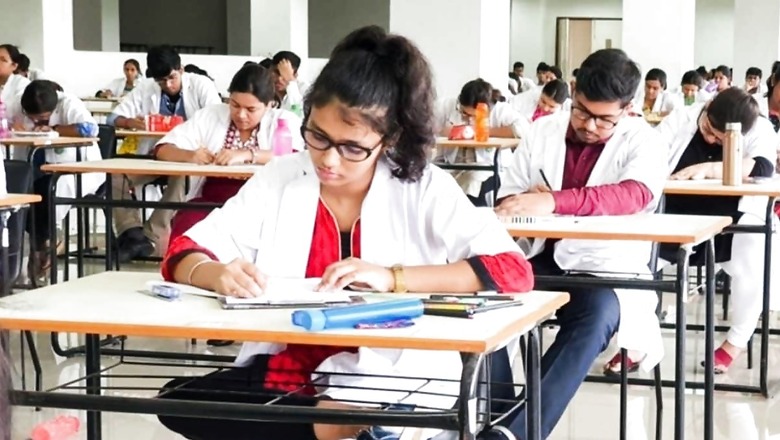
views
The Union health ministry on Tuesday said the National Nursing and Midwifery Commission (NNMC) Bill, 2023, which was passed by Parliament earlier in the day, aims to bring transformative changes in the nursing education and practice landscape.
The proposed legislation will replace the existing Indian Nursing Council with a modern regulatory structure, marking a significant legislative reform in the sector, the ministry said in a statement.
It will introduce several crucial provisions to elevate the standards of nursing education and services, enhance professional conduct and ensure greater transparency and accountability, it said.
The NNMC Bill was passed in Lok Sabha on July 28. With Rajya Sabha’s approval on Tuesday, the parliamentary process regarding the proposed legislation has been completed.
“The passing of National Nursing and Midwifery Commission Bill 2023, signifies a major step towards elevating nursing education and practice standards, fostering innovation, and enhancing collaboration across the healthcare sector.
“It is a crucial milestone that underscores the government’s commitment to nurturing a highly skilled and competent nursing workforce, thus ensuring the delivery of quality healthcare services to the nation,” the ministry said.
Listing the key highlights of the Bill, it said a National Nursing and Midwifery Commission and autonomous boards at the national level will be established under the proposed legislation.
Corresponding State Nursing and Midwifery Commissions will also be set up to regulate and maintain education and service standards, oversee professional conduct, and manage online and live registers, it said.
One of the pivotal reforms in the proposed law will be the provision of fixed tenures for members and the chairperson of the commission, eliminating reappointment and preventing vested interests.
This measure ensures transparency and accountability among regulators in the nursing education sector. The proposed law will also grant the government the authority to issue directions to the commission in the interest of the public, the ministry said.
The national commission will implement a standardised admission process to ensure consistency across nursing education. Moreover, it will focus on maintaining the competence of nursing and midwifery professionals to ensure high-quality healthcare services, the statement said.
The commission will collaborate with the industry and other institutions to foster synergy, excellence and research in the nursing field, it said.
The proposed law emphasises the development of soft skills among registered professionals and recognises specialised courses and certification programmes in nursing and midwifery.
It also seeks to facilitate global mobility and employability of Indian nurses by inviting foreign experts and domain specialists to participate in the national commission’s meetings.
This international collaboration will contribute to enhancing the skills and expertise of Indian nurses, the ministry said.
The proposed legislation provides for the formation of a National Advisory Council to ensure balanced representation from all states and union territories. This council will offer advice on matters related to nursing education, services, training and research, it said.
Additionally, joint sittings with relevant statutory bodies, including the National Medical Commission, Pharmacy Council of India, National Commission for Allied and Healthcare Professions, National Commission of Indian System of Medicine and National Commission of Homeopathy will promote a team-based approach to healthcare delivery, it added.



















Comments
0 comment